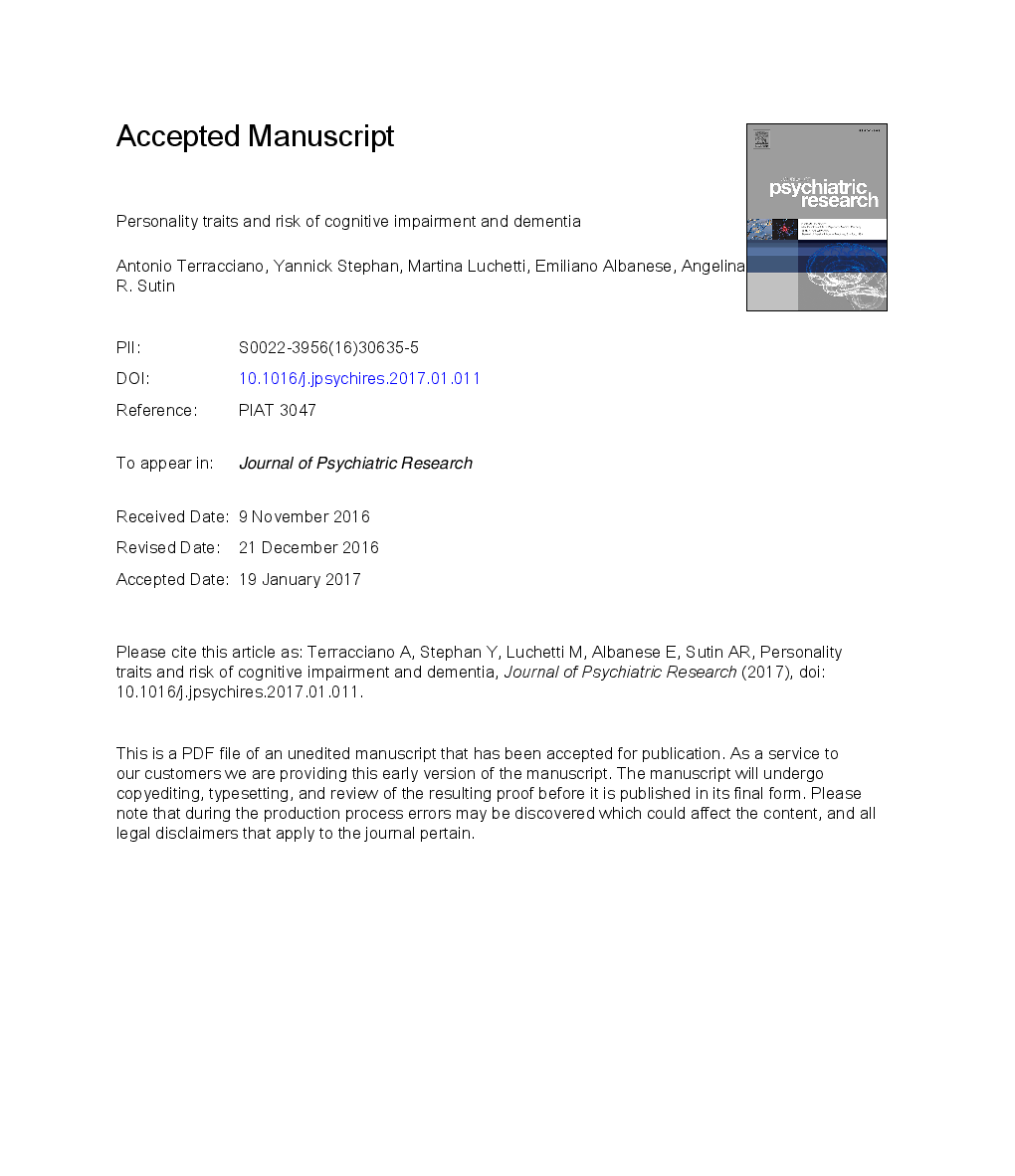We investigated the association between five factor model personality traits (neuroticism, extraversion, openness, agreeableness, and conscientiousness) and risk of dementia, cognitive impairment not dementia (CIND), and conversion from CIND to dementia in a large national cohort. Participants from the Health and Retirement Study (NÂ >Â 10,000) completed a personality scale in 2006â2008 and their cognitive status was tracked for up to 8 years using the modified Telephone Interview for Cognitive Status (TICSm). Adjusting for age, sex, education, race, and ethnicity, lower conscientiousness and agreeableness and higher neuroticism were independently associated with increased risk of dementia. These associations remained significant after adjusting for other risk factors for dementia, including income, wealth, smoking, physical inactivity, obesity, diabetes, hypertension, and blood biomarkers. These associations were not modified by age, sex, race, ethnicity, and education, suggesting that the associations of personality with risk of dementia were similar across demographic groups. Neuroticism and conscientiousness were also associated with risk of CIND. Low conscientiousness predicted conversion from CIND to dementia. Using brief assessments of personality and cognition, we found robust evidence that personality is associated with risk of cognitive impairment and dementia in a large national sample.


